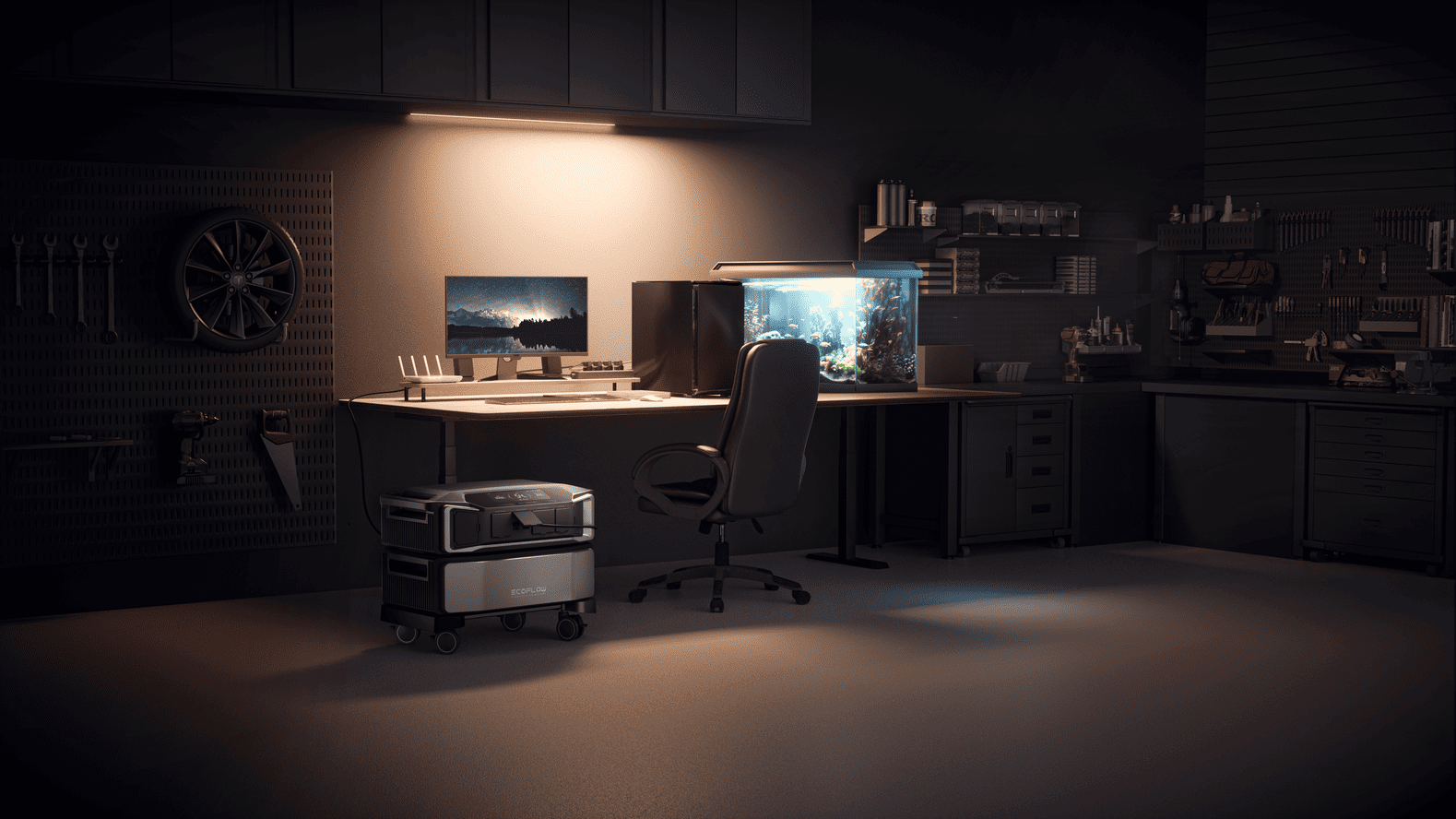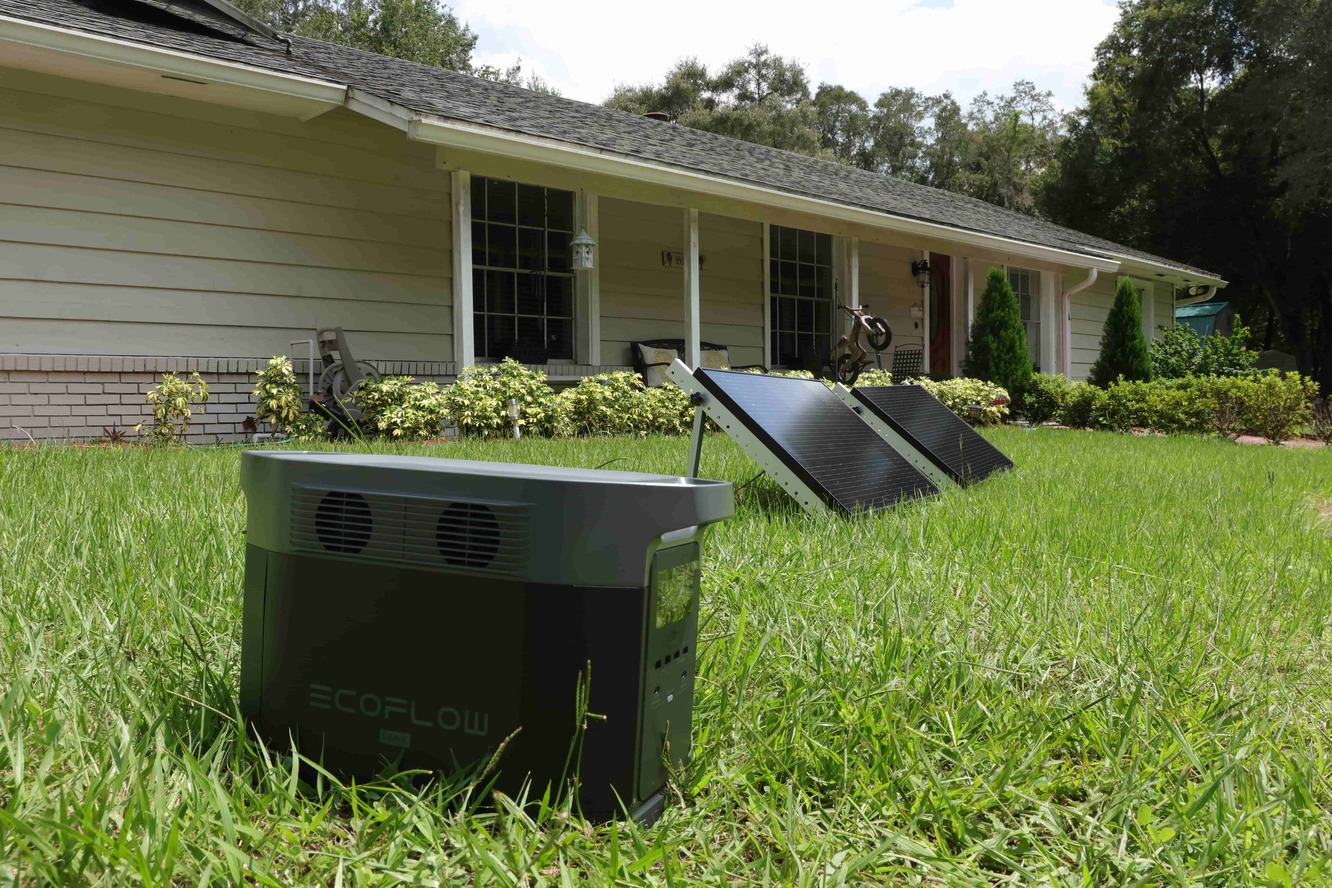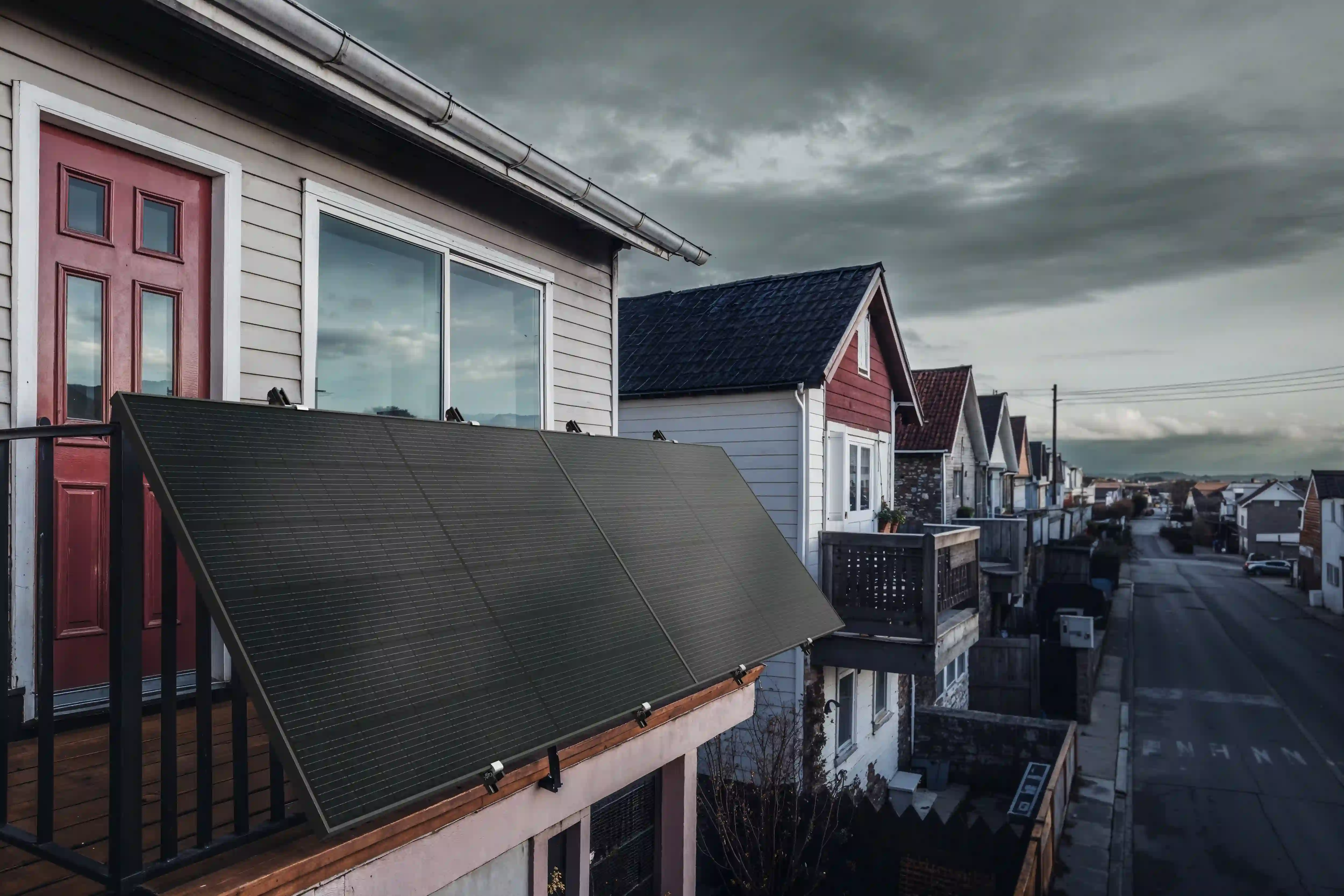Stay Powered During the Storm: A Comprehensive Guide to Emergency Energy for Hurricanes
Key Takeaway
A bit of planning goes a long way. With a hurricane preparedness kit and a reliable emergency home power supply, you can ride out any storm with ease. Make sure you keep your survival kit for power outage events up to date, and you'll be prepared for anything the hurricane season brings.
When a hurricane hits, electricity often goes out for days. Simple things, such as an ice-cold beverage or a charged phone, become luxuries. A good strategy and the right power supply can make all the difference between comfort and safety in a storm. Here, we will walk you through the top home backup power options and what supplies you need to have ready.
Power Outage Essentials: What Every Home Needs
The right gear does make a world of difference during a hurricane. Your hurricane preparedness kit should address food, water, safety, and ways to keep the lights on.
Food and Water Supplies
You should have a minimum of three days' worth of food and water. Each person should have one gallon of water per day for sanitation and drinking. Buy non-perishables such as canned vegetables, meat, peanut butter, trail mix, granola bars, and dried fruit. These are heat-stable and do not require cooking.
Lighting and Communication
Flashlights, battery-powered lanterns, and dozens of extra batteries are must-haves. Never use candles, as they will ignite fires. A battery-powered or hand-crank radio will keep you updated on weather alerts and emergency instructions.
Emergency Power for Home Devices
A solar charger or portable power bank can keep your phone operating in the absence of electricity. For larger requirements, a portable generator or power station can operate a refrigerator, fan, or lights. Always follow safety precautions and never run a generator indoors.


First Aid and Personal Safety
A first-aid kit is required for the treatment of minor injuries. Add any prescribed medication, medical history, and personal hygiene items such as moist towelettes and garbage bags for cleanup.
Other Power Outage Essentials
You can also have the following essentials prepared:
- Manual can opener
- Disposable plates and utensils
- Blankets and sleeping bags
- Cash (ATMs and card readers may not work)
- Copies of important documents in a waterproof bag
- Local maps and emergency contact numbers
Emergency Power for Home: Your Options
Backup power can keep you and your family safe and comfortable when the power is out. Here are the most ideal ways to power your home during a hurricane. An effective emergency power plan employs both whole-house and portable solutions, based on your budget and requirements.
Portable Generators
Portable generators are a common component of hurricane survival kits. They can run lights, refrigerators, and some small appliances. Operate them outdoors away from windows to avoid carbon monoxide poisoning. Keep extra fuel stored safely, and operate the generator periodically to maintain it in proper working condition.


Standby Generators
Standby generators are installed outside your house and switch on automatically when the power goes out. They run on natural gas or propane and can supply your entire home. These are more expensive but the most convenient and dependable.
Solar Power and Battery Storage
Solar panels paired with battery storage can keep the essentials running during an outage. Though solar by itself will not do you any good if the grid fails, batteries allow you to store power for nighttime or overcast days. Have your panels properly mounted to resist heavy winds, and have your battery bank properly sized for your requirements.
Many advanced solar generator systems on the market offer these capabilities. For instance, ECOFLOW's DELTA Pro Ultra, when combined with their portable or rigid solar panels, exemplifies a powerful solar generator setup. This type of system allows you to efficiently charge the battery bank during the day and then utilize that stored energy at night or during periods without direct sunlight. A key advantage of such systems, demonstrated by the DELTA Pro Ultra's modular design, is the ability to expand your storage capacity as your energy needs evolve. Furthermore, look for solar panels built to withstand tough weather, like those offered by ECOFLOW, which are designed for durability in challenging environments, making them well-suited for hurricane-prone areas.
Portable Power Stations
For smaller needs, a portable power station is an excellent addition to your power outage survival kit. They charge phones, run lights, and even operate a CPAP machine. Opt for ones with several outlets and USB ports, and charge them ahead of time before the storm hits.
How to Use Emergency Power Without Risk During Hurricane
Using emergency power requires care. Mistakes can lead to fire, carbon monoxide poisoning, or electrocution. Follow these rules to keep your family and property safe.
Avoid Electrical Shocks
Keep all electrical gear dry. Never operate a generator in the rain or on a wet surface; use a canopy for protection. Plug appliances directly into the power source. If you use extension cords, make sure they are heavy-duty and rated for outdoor use. Never touch electrical equipment if you are wet or standing in water. A Ground Fault Circuit Interrupter (GFCI) can also shut off power if it detects a problem, adding another layer of protection.
Prevent Carbon Monoxide Poisoning
Generators produce lethal, odorless carbon monoxide (CO) gas. Never use the generator inside your house, garage, or shed—not even with the doors open. Keep it at least 20 feet from all windows, doors, and vents to prevent the exhaust from entering. Install battery-powered CO detectors indoors, near sleeping areas, and test them regularly. If an alarm goes off or you feel dizzy or sick, get to fresh air immediately and call for medical help.
Prevent Generator Fires
A running generator is very hot. Refuel safely by shutting it off and allowing it to cool before refueling. Spills on hot engine parts will ignite easily. Keep your fuel (gasoline, propane, etc.) in approved safety cans, out of reach of the generator and other heat sources such as a water heater. Never smoke or have an open flame around fuel.
Stop Deadly Backfeeding
Hooking your generator directly to a standard wall outlet is called backfeeding, and it's very hazardous. It pushes the electricity back onto the utility lines, which can kill utility workers trying to restore power. It can also result in a fire at your house. The sole safe manner to attach a generator to your house wiring is with a transfer switch installed by a licensed electrician. Otherwise, simply plug your appliances straight into the generator.
Protect Batteries from Heat and Water
Batteries don't like extreme temperatures. Store them in a dry, cool place, out of direct sunlight. Too much heat will make them overheat, and freezing temperatures will slow them down. Water is also an enemy; it will create short circuits and permanent damage. If you're operating a battery pack outside, ensure it's rated for wet conditions (search for an IP65 or higher rating).
Handle Batteries Safely
Always handle batteries with care. Never let metal items, such as tools, come in contact with the terminals, as it may lead to a spark or short circuit. Put them on a firm, non-flammable surface, away from any flammable material. Keep the area well-ventilated to avoid heat accumulation. Discontinue the use of a battery when you realize that it is cracked, swelling, or emits an odor of rotten eggs. Handle it with gloves and take it to a proper recycling facility.
A Storm-Ready Plan: Before, During, and After the Outage
Getting Ready Before the Storm
Preparation is your best defense. Long before a storm is on the radar, get your power gear ready. For a generator, this means checking the oil, testing the battery, and running it for a few minutes to make sure it starts. For a battery system, give it a full charge and check that all cables are in good shape.
Once a storm is named, things move fast. Fill your car's gas tank and any approved fuel cans for your generator. Gasoline and propane disappear from stores quickly. Also, fully charge your phones, laptops, and all your power banks. Having extra batteries for flashlights and radios is always a smart move.
Riding Out the Outage
Once the power goes out, your goal is to make every watt count. Unplug everything you aren't actively using to prevent power drain and protect your electronics from a surge when the grid comes back online.
Keep your refrigerator and freezer doors shut as much as possible. A closed fridge can stay cold for hours, saving your food. Try to focus your activity in one or two rooms to conserve power for lighting. Rely on a camp stove or outdoor grill for cooking instead of power-hungry appliances like a microwave. And for safety, use flashlights or battery-powered lanterns, not candles, to avoid fire risk.


Safety and Recovery After the Storm
Restoring power is a massive job for utility crews. They fix major lines first, so it can take days for them to reach your neighborhood. Be patient. If your neighbors get power back but you don't, the problem might be with your home's connection. You may need an electrician to inspect it before the utility company can help.
The biggest danger after a storm is downed power lines. Always treat fallen lines as live and deadly. Stay far away from them and anything they are touching. Report them to your utility company immediately. When your power finally returns, wait a few minutes before turning your appliances back on to protect them from a sudden surge.
Final Thoughts on Hurricane Power Outage Essentials
Getting through a hurricane involves thorough emergency power preparation. Proper planning will contribute to household resilience. From understanding grid vulnerabilities to assessing energy needs, each step creates a more secure environment during outages.
Power Outage Essentials FAQs
Q1: Can I use a generator indoors?
No, never use a generator indoors or in any enclosed or partially enclosed space, including garages, basements, sheds, or porches. Generators produce carbon monoxide (CO), an odorless, colorless, and deadly gas. Even with windows and doors open, CO can quickly build up to dangerous levels. Always operate generators outdoors, at least 20 feet away from doors, windows, and vents of any building.
Q2: Can battery backup systems be used indoors?
Yes, portable power stations and home battery backup systems can generally be used indoors because they do not emit fumes like traditional generators. However, proper ventilation is still important to dissipate heat generated during operation, especially for high-demand appliances. Place them in a well-ventilated area, avoiding enclosed spaces, and keep them on a stable, non-combustible surface away from flammable materials and moisture.
Q3: How can I save energy during a power outage?
To maximize your backup power, unplug non-essential appliances to prevent "phantom energy draw" and protect against surges. Keep refrigerator and freezer doors closed as much as possible to preserve food. Choose no-cook meals. Adjust your thermostat significantly to reduce HVAC use. Use power strips to easily disconnect multiple devices. Focus power on only one or two essential rooms or critical appliances. Charge devices strategically during daylight hours if using solar power.
Q4: What should I do if my neighbors have power but I don't after a storm?
If your neighbors' power is restored but yours is not, the problem often lies with your home's equipment, such as a damaged electrical panel or weatherhead (the connection point to the power lines). You will need to have these components inspected and repaired by a licensed electrician before the utility company can safely restore power to your home. Always stay away from downed power lines and report them immediately to emergency services and your utility provider.
For press requests or interview opportunities, reach out to our media team
media.na@ecoflow.com